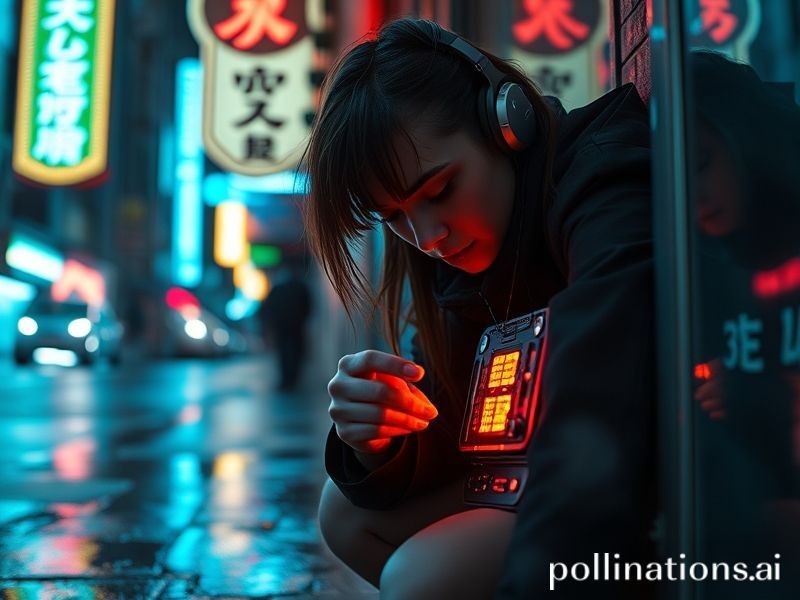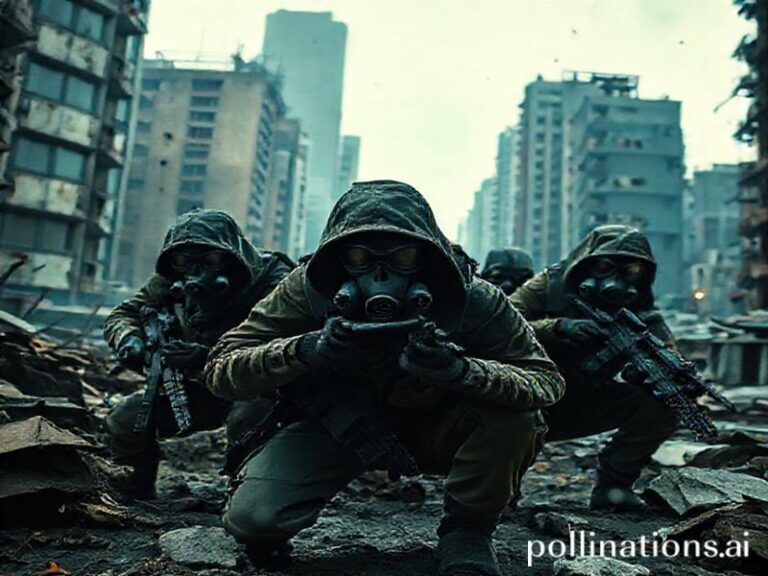Patch 2.31: How Cyberpunk 2077’s Latest Bug Fix Became the World’s Shared Therapy Session
CD Projekt Red quietly slipped patch 2.31 onto the world stage last week, an update so modest it could be mistaken for a minor tax-code revision. Yet from Lagos LAN cafés to Seoul e-sports arenas, the patch has become a Rorschach test for how humanity now copes with disappointment: we keep installing hope, 2.2 GB at a time.
The changelog is a haiku of restraint—three crash fixes, two quest hiccups, and a single tweak to “improve overall stability.” In other words, the Polish studio has essentially offered a band-aid to a patient already discharged from the ICU. Still, gamers from São Paulo to Stockholm rebooted their rigs with the solemnity of pilgrims lighting candles. Somewhere, a teenager in Jakarta waited through a 14-hour download on third-world bandwidth, proving that late capitalism has at least democratized the right to suffer equally.
Why the global devotion to a game that once barreled out of the gate like a Bugatti with square wheels? Because Cyberpunk 2077 has become the century’s first truly international fable of hype and hubris. It sold 13 million pre-orders before the pandemic toilet-paper rush, then cratered so spectacularly that Sony yanked it from the PlayStation Store—an act akin to McDonald’s refusing to serve fries. Eighteen governments launched investigations; Australia’s consumer watchdog barked loudest, presumably while on hold with the same customer-service chatbot we all meet when trying to cancel a gym membership.
Patch 2.31 therefore arrives less as software and more as diplomatic communiqué. In Russia, where the game’s themes of corporate oligarchy hit uncomfortably close to home, modders greeted the patch by patching the patch, adding Cyrillic subtitles that translate “improved stability” as “we swear we’re not the Kremlin.” Meanwhile, Japanese players—who endured a version so bug-ridden it could double as a haiku about futility—took to Twitter with the stoic hashtag #2GBOfHonor, reminding the rest of us that shame is a renewable resource.
The geopolitics get darker. Semiconductor shortages mean a 3080 Ti in Buenos Aires costs more than the average monthly salary, yet local Discord servers still hum with gallows humor: “At least the crashes are free.” Across the Mediterranean, Greek streamers monetize their play-throughs in euros while the country’s youth unemployment hovers at 35 percent—an irony not lost on viewers who donate bits instead of paying rent. In India, farmers between protest marches boot up patched Night City on decade-old laptops, finding solace in a dystopia still less bleak than the Delhi smog.
All of which raises the question: are we patching the game, or is the game patching us? Each incremental update functions like a UN resolution—high-minded, heavily negotiated, and ultimately unenforceable in your living room. CD Projekt’s redemption arc has become the mirror in which the planet watches itself forgive again and again, a global ritual of collective amnesia sponsored by RGB lighting.
The patch notes themselves are a masterclass in bureaucratic poetry. “Fixed an issue where Delamain’s cabs could spawn underground” reads like a dispatch from a Cold-War Berlin spy novel. One can almost picture a rogue taxi burrowing beneath the Brandenburg Gate, headlights blinking Morse code for “please clap.” Gamers in Mexico City report the fix works, though some cabs now hover three feet above ground—apparently even code obeys the national tradition of magical realism.
And so the cycle spins. Tomorrow, some kid in Nairobi will torrent patch 2.32 before the sun rises, chasing the same mirage of perfection that keeps the rest of us refreshing update pages at 3 a.m. The servers will groan, the patch will land, and the planet’s collective shrug will register on seismographs from Reykjavík to Christchurch. Because if the 21st century has taught us anything, it’s that the future arrived broken, and we’re all just QA testers now—submitting bug reports to the void, one download at a time.
In the end, patch 2.31 doesn’t fix Cyberpunk 2077. It fixes nothing at all. But it gives eight billion people a shared ritual of hope, disappointment, and dark laughter—an operating system update for the human condition. And honestly, could anything be more cyberpunk than that?







